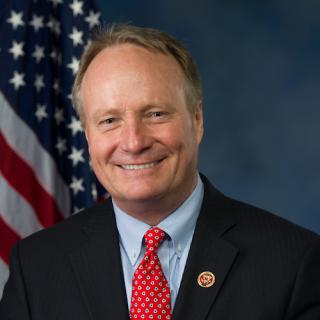Financial Services and General Government

Chairman Dave Joyce
2000 Rayburn House Office Building
(202) 225-7245
Majority | Minority |
| Dave Joyce – Chair | Steny Hoyer – Ranking Member |
| Steve Womack | Mark Pocan |
| Mark Amodei | Marie Gluesenkamp Perez |
| Ashley Hinson | Glenn Ivey |
| Michael Cloud | Sanford Bishop, Jr. |
| Chuck Edwards | |
| Mark Alford | |
| Nick LaLota – Vice Chair |
Recent Activity
Mr. Chairman, I am pleased to begin consideration of H.R. 4664, the Fiscal Year 2024 Financial Services and General Government appropriations bill.
Before I get into the details, I'd like to recognize the hard work of Chairwoman Granger on this bill and the entire appropriations process. We are one step closer to passing the last remaining few appropriations bills.
Thank you, Mr. Chairman, and thank you to the distinguished acting Ranking Member, and I too, send my prayers to the family of Jim McGovern for the hardship that the family is facing right now. It's an honor to be before you today as we tee up the Financial Services and General Government Subcommittee appropriations bill. I also want to thank my good friend and Ranking Member, Steny Hoyer. He is a dear friend, and I say that with all sincerity.
Madam Speaker, I rise today in support of H.R. 5860, a bill that keeps the government open until November 17th.
While I would rather be here speaking on the floor about final appropriations bills, I want members to understand why passing this short-term funding bill today is so important.
First, I want to explain how we find ourselves in this situation.
Just nine months ago, when Republicans took back the Majority in the House, our commitment was to Regular Order for appropriations.
WASHINGTON – Today, the Full Committee met to consider the Fiscal Year 2024 bill for the Financial Services and General Government Subcommittee. The measure was approved by the Committee with a vote of 34 to 26.
It is an honor to serve as Chairman of the Financial Services and General Government Subcommittee of the House Appropriations Committee. I want to thank my friend—Chairwoman Kay Granger—for giving me this opportunity. Thank you, also, to Ranking Member DeLauro for her commitment to the work of this committee. And to my Ranking Member, Steny Hoyer, thank you for your leadership and friendship through the years. It's a real privilege to work with you.
First, I want to thank Chairman Womack for his work on the Fiscal Year 2024 Financial Services bill.
As I have said before, to fully fund our national defense, veterans, and border security, other unnecessary spending must be reduced.
This bill rejects significant increases in the President's Budget Request, and instead saves billions of dollars by reclaiming unspent funds from the Inflation Reduction Act and preventing the I.R.S. from hiring tens of thousands of new agents.
Good morning, everyone. The Subcommittee will come to order.
This morning we will markup the Fiscal Year 2024 Financial Services and General Government appropriations bill.
I want to welcome all the Subcommittee Members to this morning's markup, including the distinguished Chair of the full House Appropriations Committee, Kay Granger, Ranking Member DeLauro, and Subcommittee Ranking Member Hoyer.
